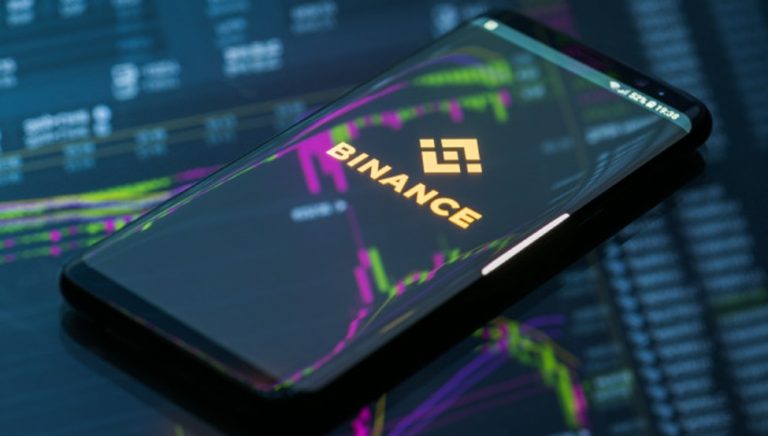
The Nigerian government appears unrelenting in its crackdown on cryptocurrency exchanges, particularly targeting Binance, one of the world’s largest platforms. Amid these measures, Bayo Onanuga, special adviser on information and strategy to President Bola Tinubu, has revealed that the government is seeking retribution amounting to at least $10 billion from Binance.
This move comes amidst desperate attempts to salvage the value of the nation’s local currency, the naira, fueling the narrative that the government is looking to get as much as it can from Binance to boost its $10 billion forex inflow quest.
In a recent interview with the BBC, Mr. Onanuga claimed that Binance has been making substantial profits from what he termed “illegal transactions” in Nigeria, juxtaposed against the nation’s significant losses. He alleged that Binance, despite lacking registration and physical presence in Nigeria, facilitated practices that adversely affected the Nigerian economy. According to Mr. Onanuga, the platform was utilized for arbitrarily fixing dollar-naira exchange rates, thereby negatively impacting the value of the local currency.
Register for Tekedia Mini-MBA edition 19 (Feb 9 – May 2, 2026): big discounts for early bird.
Tekedia AI in Business Masterclass opens registrations.
Join Tekedia Capital Syndicate and co-invest in great global startups.
Register for Tekedia AI Lab: From Technical Design to Deployment (next edition begins Jan 24 2026).
Two senior executives at Binance, one of the world’s largest cryptocurrency exchanges, were reportedly detained in Nigeria after the governor of the central bank Yemi Cardoso alleged that more than $26 billion passed through the exchange in one year.
“We are concerned that certain practices go on that indicate flows, going through a number of these entities and suspicious flows. In the case of Binance, in the last year, $26 billion has passed through Binance Nigeria from sources and users who we cannot identify,” he said.
Addressing the cooperation purportedly initiated by Binance, Mr. Onanuga stated that the platform was already providing useful information to the Nigerian government and had suspended naira-related transactions. Nonetheless, Nigeria remains resolute in its demand for retribution, setting the bar at $10 billion.
Earlier statements by Mr. Onanuga underscored the perceived threat posed by Binance to the Nigerian economy. He warned that failure to curb the platform’s activities could result in catastrophic consequences, with implications for foreign exchange rates and broader economic stability.
Confirmation of the government’s clampdown efforts on Binance and other crypto platforms came from a top official of the Office of the National Security Adviser (ONSA). Zakari Mijinyawa, head of Strategic Communication at ONSA, disclosed that an interagency investigation, in collaboration with the Central Bank of Nigeria (CBN) and other relevant agencies, is underway to scrutinize Binance’s operations.
Sources revealed that Nigerian authorities have demanded extensive transaction data from Binance, spanning the past seven years, specifically about transactions involving the Nigerian Naira. Additionally, requests were made for the deletion of certain data relating to Nigeria from the Binance platform. However, the Binance executives, who are said to be one American and one British-Pakistani, have insisted on diplomatic protocols, asserting their rights to be escorted to their respective countries’ embassies before compliance.
The move may deter FDIs
Economic experts have raised concerns about Cardoso’s approach to the foreign exchange (FX) crisis, noting similarities to the strategy employed by his predecessor, Godwin Emefiele, who opted to crack down on FX rates aggregator AbokiFX and Bureau de Change (BDC) operators. They also express apprehension about the potential consequences of Nigeria imposing a $10 billion penalty on Binance, warning that the ramifications extend beyond immediate financial implications.
These experts caution that such actions could have a significant impact on Foreign Direct Investments (FDIs) into the country. For a country desperately in need of FDIs, they warn that investors may interpret Nigeria’s stringent regulatory measures against cryptocurrency exchanges as a signal of uncertainty and instability, potentially dissuading investment inflows.
Additionally, they say that Nigeria’s regulatory environment could suffer from negative international perception, potentially damaging its reputation in the global financial community. Intensified regulatory scrutiny may convey instability and discourage potential investors, impeding economic growth and development efforts.
Furthermore, they note that the repercussions of Nigeria’s actions on Binance may reverberate throughout the broader cryptocurrency market. Heightened regulatory crackdowns in significant economies might sow uncertainty and volatility, influencing investor sentiment and market dynamics on a global scale.



